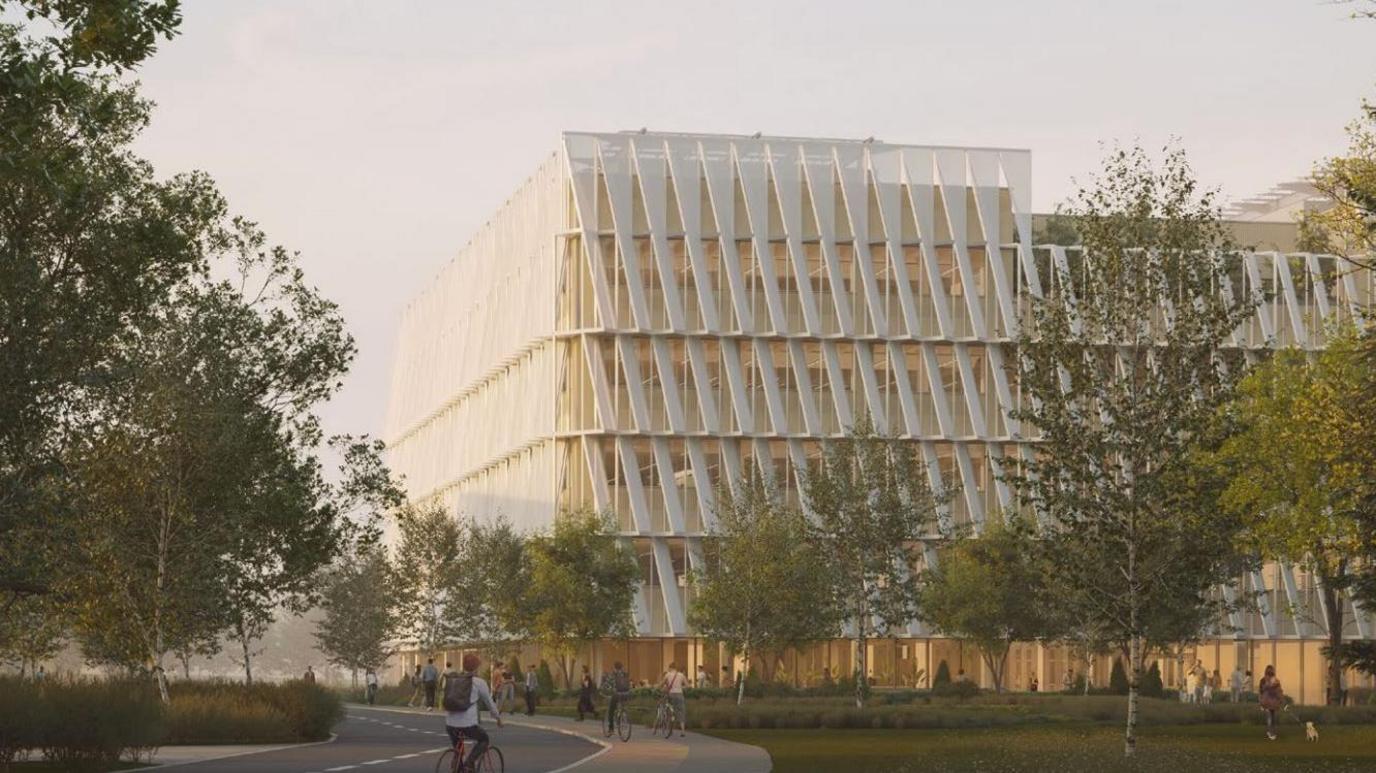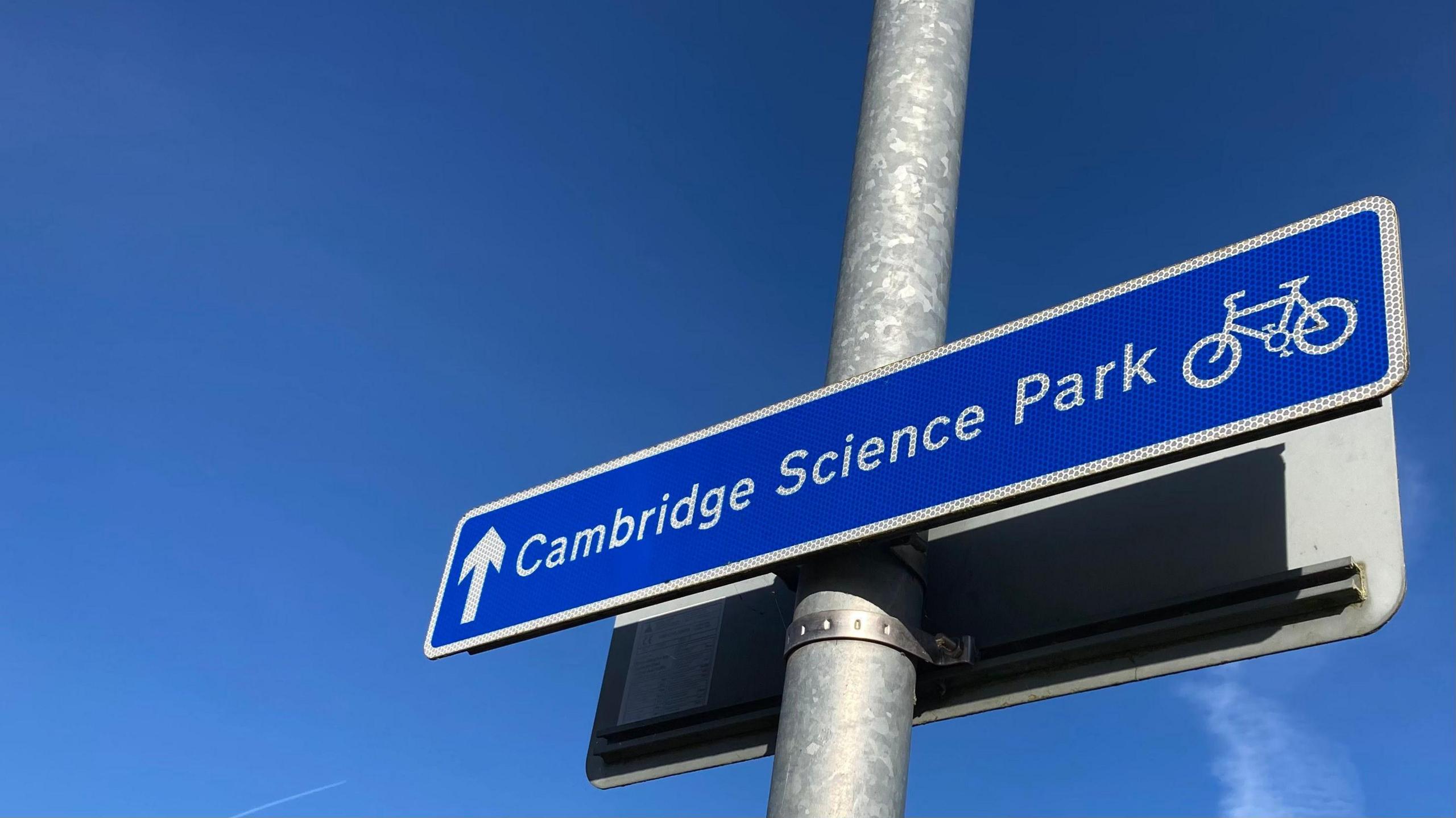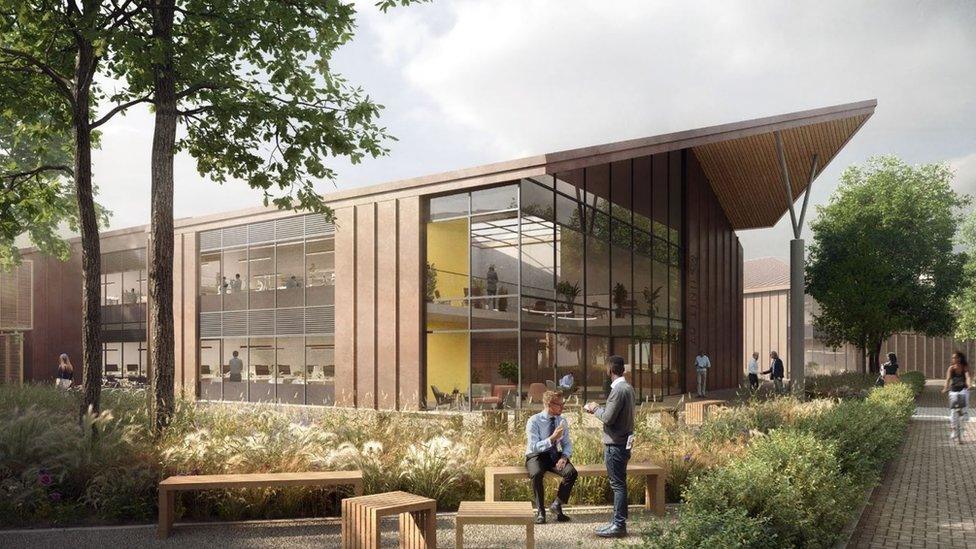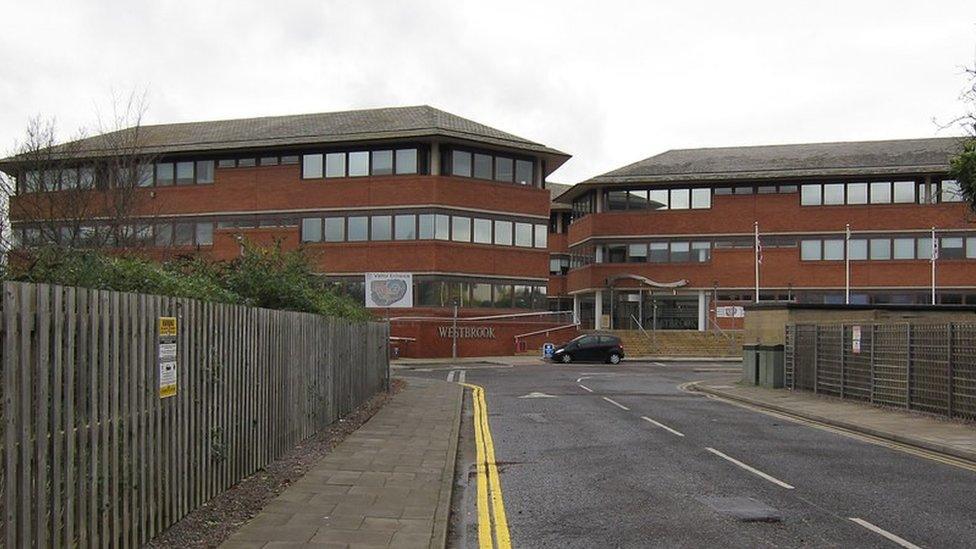Five-storey lab and offices to be built on city edge

Plans for the 27m (88ft) building at the Cambridge Science Park have been approved
- Published
A new five-storey laboratory and office building is set to be built on the edge of a city.
Cambridge City Council and South Cambridgeshire District Council approved plans for a new research and development building at the Cambridge Science Park.
Plans were put forward by Trinity College which owns the land.
While some concerns were raised about the size of the new building, planning officers said it "maximised" the use of the site.
The 27m (88ft) building would have laboratory and office space, the Local Democracy Reporting Service, said.
It would include 154 cycle spaces, 50 car spaces next to the building and a further 60 parking spaces allocated from underused existing car parks at the site.
The application was considered by councillors at a joint development control committee meeting on Wednesday.
Emma Woods, a representative of Trinity College, said the application would "deliver much-needed flexible research and development space".
"The Cambridge Science Park is a very significant long term investment for the college," she added.
"The college has owned this land for almost 500 years and considers itself to be a steward of the estate.
"Its strategy is to continue investing in sustainable growth on the park for the benefit of future generations."
Some councillors had concerns over the building's exterior which was due to be covered in fabric 'fins' that were designed to prevent overheating.
Officers said there was a condition requiring the fins to be maintained to "keep the building looking good in the future".

The Cambridge Science Park is the oldest of its kind in the UK
Concerns were also raised about the two-tier cycle spaces and some councillors said it was "very difficult to use" and would not encourage people to cycle.
Officers, however, said plans for cycle parking complied with the policy requirements.
Councillor Martin Smart stated he was not against big buildings, but raised concerns about the height of the building and said "the important thing about architecture is context".
"This building does stick out, it does not fit well in the context. It may well be that the context is developed in the future, but at the moment it is quite a bit bigger than what is around it," he said.
He suggested it should be "at least a storey lower" and raised concerns it would give the "green light" to have similar height developments around it.
While he said he was "not impressed" by the building, he added he did not think that was reason enough to refuse the application.
When a decision on whether to approve the development was put to a vote, the committee councillors voted unanimously in favour of approving the application.
Get in touch
Do you have a story suggestion for Cambridgeshire?
Follow Cambridgeshire news on BBC Sounds, Facebook, external, Instagram, external and X, external.
Related topics
Stories like this
- Published21 June 2024

- Published11 April 2024

- Published28 January 2024
